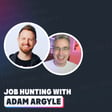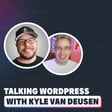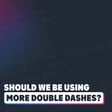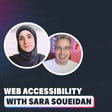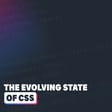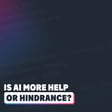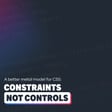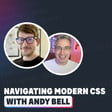Become a Creator today!Start creating today - Share your story with the world!
Start for free
00:00:00
00:00:01

Navigating ADHD as a developer
ADHD FTW: https://adhdftw.com/kevin-powell
Getting shit done with ADHD: https://adhdftw.com/getting-shit-done
In this conversation, Chris Ferdinandi shares his personal journey with ADHD, discussing its impact on his life and career as a developer. He explores the prevalence of ADHD in the developer community, signs and symptoms of the condition, and the importance of diagnosis and self-awareness. Chris offers practical strategies for managing ADHD, highlights the positive aspects of the condition, and reflects on how his understanding of ADHD has evolved over time. He also introduces his course, 'Getting Stuff Done with ADHD,' aimed at helping individuals leverage their unique brain wiring for productivity.
Transcript
Introduction: ADHD in Development
00:00:01
Speaker
Hello my front-end friends and welcome to my podcast, General Musings. My name is Kevin and normally in this podcast I talk about whatever is front of mind for me in any given week related in some way or another to front-end development.
Guest Spotlight: Chris Ferdinandi
00:00:14
Speaker
But this week is going to be a little bit different as I sat down with my friend Chris Ferdinandi to talk about ADHD, how ADHD affected his career as a web developer, how it's actually really common within the developer community,
00:00:25
Speaker
the importance of the self-awareness of knowing that you have ADHD.
Managing ADHD: Strategies and Experiences
00:00:28
Speaker
And Chris also shares his experiences and strategies for managing ADHD in a professional context. Also really hit home for me as you'll hear about as you're listening. So let's jump right into it. Yeah, Chris, thanks for for coming on and and here to chat with me about, of all things, ADHD, because I think most people, at least the follow me, know you more as the vanilla JavaScript guy. So I'm just curious what inspired you, first of all, to go down this ADHD path.
00:00:54
Speaker
Yeah. ah So Kevin, thanks again for, for having, I always love our chats. Um, so I, um, I've known one I've had ADHD since I was younger. I, um, uh, it has, it has affected my career in lots of ways. It's created some interesting challenges. It's given me some unique superpowers that some of my fellow developers don't have.
Public Sharing & Community Response
00:01:17
Speaker
So it's a blessing and a curse. Um, and I've just, I've found that every time I talk about having ADHD.
00:01:24
Speaker
I get a bunch of emails from people who are like, oh, That sounds like me. I, maybe I have a two and then like a month later I'll get like, I got diagnosed and it's unlocked all these things about myself that have helped me. So like, thank you. Or, um, yeah, just, I get, I get lots of, or, you know, I have it and I've always felt weird about talking about it. Thanks for like, de-stigmatizing it a little. So the more I talk about it, the more people seem to like it. So the more I do it. Um, so I ended up, uh, recently I, I just spun off a hole so that I wouldn't completely flood go make things.com with ADHD content. I spun up a separate.
00:01:58
Speaker
website as web developers tend to do. So if you go to adhdforthewind.com, I've got all my ADHD stuff now. ah Lots of tips and tricks and resources on figuring out if you have it, if you think you might, um and what to do about it if
ADHD's Prevalence in Development
00:02:14
Speaker
you do. Yeah, it was interesting you said that like as the more you've been talking about it, you've had other people saying things because or mentioning that you they think they might as well based on what you're saying. And I'm curious, just it seems to be something that pops up a lot in the dev community that you hear people saying, oh, I think I have it or they already know they have it. Do you think it's common for people that are in sort of this career path or is it something that is more widespread in other areas? And it's just because that's the circle I'm in that I'm just hearing it for sort of our group.
00:02:44
Speaker
I believe, I don't have hard numbers on this, but I believe that ADHD folks are overrepresented in the developer community. um So just as a quick high level, if you're not 100% familiar with the term, ADHD stands for Attention Deficit Hyperactivity Disorder.
00:03:03
Speaker
You don't really have a deficit of attention. Um, it's an executive functioning disorder and for folks with it, you have trouble regulating your attention, which means sometimes we are like scattered squirrel kind of, you know, people, and then other times we're like really overly focused on just one thing. Um, but the underlying cause, and I shouldn't say cause cause not like, like a thing that you can then fix is genetic. But one of the things that creates most of the symptoms associated with ADHD is that my brain does not make enough dopamine. and um Dopamine is a neurotransmitter that regulates memory and learning and attention and a whole bunch of other things. Ability to perceive time. It's another fun one. And so um one of the things i have I have come to believe is that dev work is really
00:03:50
Speaker
almost like the perfect job for someone with ADHD for a couple of reasons. First of all, ah you're often thrown these big challenging problems that you need to work through. And so that it's almost like a video game, right? It's like, Ooh, I got to work on this thing. It's really open-ended and confusing and difficult, but I've got these constraints.
00:04:08
Speaker
So that's fun, that's exciting, that kind of that hooks you the way a game might. And then it also features lots of really tight feedback loops. So you do a thing, a thing either happens, or it doesn't happen with an error, or it happens but wrong, and now you've got to go figure out why. And um for the same reason that video games are really um Addictive, but not always in a bad way for people with ADHD because it creates all these dopamine spikes and my brain doesn't have enough of it. I feel like coding often does very much the same thing. And so you see a lot of devs in this line of work who have ADHD.
Humorous Interlude
00:04:44
Speaker
And I think that's because our brains are uniquely well-suited for this kind of work. um We can do it really well and it makes us happy and it's fun. So it's like a win-win. That's interesting to say that. I'm going to have to run for two seconds, though. I hear my kids screaming in the background. No worries. Go get them. Sorry about that. well kind later it No, it's all good. yeah Yeah. Sorry. One second. Sorry about that. Oh, you're quite all right. I was literally if you when you go to watch this later, you're going to see me having like a dance party while you're away. I'm just um I'm living my best life today, Kevin.
00:05:14
Speaker
Yeah, my my younger one put his hand on the front of a Nerf gun and cocked it and it somehow suction cupped the gun onto his hand. know so I didn't know that was but there was a thing, but there we go. They make them a lot stronger than they used to. Yeah.
00:05:34
Speaker
Um, I'm glad you enjoyed the break. We had just been talking about, um, why, why it seems like there's so much more ADHD in the dev community than other places. Yeah, yeah but that's a really interesting action. I like that point you bring up about the, the short feedback loops, um, that makes a lot of sense. And it is, it's definitely, I think with, with anything you're doing every time at you hit save and you see something happen or you don't, and then have to figure out why, but yeah. Um, I think that's, that's a really good point.
00:06:03
Speaker
um Now you did mention also earlier that when you were talking, you were when you talk about things, people sort of see themselves in what you're saying, even if they're not diagnosed with ADHD. And I think especially within our generation and older generations, a lot of people have like undiagnosed ADHD. So other, you know, just curious, you sort of talked a bit about what it is, but what are some of the signs that somebody would might have it, I should
Understanding ADHD Symptoms
00:06:32
Speaker
say.
00:06:32
Speaker
Yeah. So, um, so, and one of the, just one of the things with ADHD, I just want to caveat this. So you may listen to this and hear me say, say some things about myself and be like, Oh, that sounds like me too. A lot of ADHD things are also things that people without ADHD sometimes struggle with. Um, and the thing with ADHD is, uh,
00:06:56
Speaker
It is not unlike autism, a bit of a spectrum where there's a range of symptoms that different people have two differing degrees. So my ADHD experience is not the same as someone else's. It's also the kind of thing where something that may also affect a neurotypical person sometimes applies to an ADHD person to a greater degree. But ah so one of the, one of the biggest kind of hallmarks of ADHD is the, uh, the regulating of attention. So.
00:07:25
Speaker
you You know, that thing where some days I feel like it can really just like focus and get stuff done. And like, you can't even pull me away. Like, uh, you often go into this, it's like a flow state, but way more intense called hyperfocus where you miss meetings, you forget to eat, you forget to drink, you forget to use the bathroom, you look up from your computer and it's like eight o'clock at night and you've spent like 12 hours coding and you don't know how you got there.
00:07:49
Speaker
um So that's a blessing and a curse. It's got get its own benefits and and downsides. um ADHD folks typically have a really big, if you're in computer terms, a really big hard drive. Like I can remember lots of crazy specific details from like this birthday party I was at in second grade and you know who was wearing what and what exactly happened and you know what my friend Scott's favorite cartoon was in you know in first grade when we were in kindergarten with her whatever anyways right all these details but
00:08:23
Speaker
My RAM is absolute garbage. So I have almost no working memory. And this is kind of like a, another hallmark symptom of ADHD, where if someone tells you three things, you either remember the first or the last thing and forget everything else. Um, cause you just can't hold more than one or two things in your active working memory at a time and if they don't get written down into long-term memory um or ideally like in a notebook or like a digital like capture device ah they just get garbage collected by your brain and and you forget all about them. um
00:09:00
Speaker
So that's a really common thing. But ah yeah, there's a whole range of other things like um ah time blindness is another big one. So um Kevin, you know how like, when you're having fun, time seems to move more quickly. And when you move like when you're bored, it moves a little bit more slowly. So like, it's like that.
00:09:20
Speaker
but way more intense. like I literally can never accurately tell you how much time has passed at any particular time. And like the boring slow stuff is like literally physically painful. um This makes some interesting challenges if you work in an agency environment where you need to provide really tight estimates on how long something is going to take or how long something did take.
00:09:43
Speaker
so I can, you can ask me how long it's gonna take to do something. I usually can't tell you, I can make something up that will probably be wrong. um Even if I've done that task before, um I just, I don't know. If I don't have an active timer running to capture how long it's taking me to do something, I also cannot tell you, cause I will not remember when I started and I will have no perception of how long I've actually been working on it. um One of the, one of the fun conversations, like I'll have, you know, conversations with my wife and I'll be like,
00:10:13
Speaker
You know, like literally just this morning, you know, she's like, that wasn't this morning. That was like a week and a half ago. Like everything just kind of time is an illusion in my brain. um And I potentially have time blindness worse than worse than some other folks, especially as I've gotten a little bit older. But um It's just, it's a really big part of the ADHD experience is, is the whole, the way time works in very, very funny ways. And then there's just a whole bunch of other like little things that may or may not, um, may or may not actually apply to you depending on your, your particular life situation.
00:10:47
Speaker
My we just actually my son was just officially diagnosed with it my younger one congratulationul Or something yeah, and we're we're 99% sure my wife does have it as well her side of the family in general is a bit more on One of his a lot of Lee does because it is genetic. So yeah exactly. Yeah, I Um, but we, she hasn't been tested she and she's been thinking about it. Um, for my son, it makes sense because you know, there's different things at schools that they'll take into account now, uh, if you have a diagnosis, but if there's any adults listening that are, you know, maybe I have it, maybe I don't, do you think it's worth getting officially diagnosed or do you think it's just, if you see a lot of these symptoms or not symptoms is the wrong word, but no, that's fine. it's called um
00:11:32
Speaker
Yeah, if you if if you see a lot of yourself in in what you're saying, is it just one of those things that you so you know maybe look for resources to see and see if like different strategies and different things help you out or is the official diagnosis actually something that could be worthwhile? The answer is it depends.
00:11:48
Speaker
Um, uh, just like everything in life. So, uh, if you don't mind, if you'll bear with me for a minute, will I unpack? Of course. So I think the most important part for most people is
Self-awareness & Legal Protections
00:11:59
Speaker
the knowing and you don't need an official diagnosis for that. So, uh, if you go over to ADHD for the wind.com slash Kevin Powell, I have a bunch of resources related to stuff. Kevin and I are going to talk about one of them is.
00:12:11
Speaker
a a link to Attitude magazine where they have a self-assessment where you can you can answer a bunch of questions. And it will tell you, sounds like you probably have it or seems like you probably don't. ah And for a lot of folks, that's good enough. I was actually just reading a um ah study this morning about how, and again, this applies to kids, but I think it applies to adults too.
00:12:37
Speaker
Students who are not just told that they have ADHD, but are taught or dyslexia or autism, whatever their neurodivergence is, who are taught not just that they have a thing, but how their brain works and why it works differently. Even if no other kind of like treatments or things are done,
00:13:00
Speaker
do much better academically than students with those conditions who are not told or explained because once you know and you understand I'm not dumb or I'm not bad at this, it's just that my brain works differently because of these reasons and therefore I i can come up with something that works for me that works around that. ah you know You come up with strategies that help you. i'm not I'm not bad at homework because I'm not smart enough to do math. It's just really boring because I've done this same type of problem eight times and I got it after the third one. I don't need to do these. you know yeah So knowing that and then applying that to like as an adult in a working environment, I think the knowing is a huge chunk of
00:13:46
Speaker
being able to to not just, I don't like to say manage your ADHD. I want developers who have it to thrive. I want you to recognize that there will be things that are much harder for you, but there will also be things you can do way better than neurotypical folks. And if you lean into those, you can you can just completely crush whatever you want to do, um just you know understanding yourself. So knowing is an important part.
00:14:11
Speaker
um
00:14:14
Speaker
Knowing also allows you to ask for accommodations at work if you feel comfortable disclosing that you have ADHD. And different countries have different rules around this. In America, it is the um Americans with Disabilities Act. In Canada, um it is the Canadian Human Rights Act, requires employers to give you reasonable accommodations for ah for recognized disabilities, including ADHD. I hate that it's, I don't think of it as a disability, but I'm grateful that you know, ah laws that apply to disabilities also provide protections there because it does make certain things harder. um And then in the UK, it's called the Equality Act of 2010. That also does it there. and The EU, I haven't really dug into that much, so I can't say. But at least in the US, you don't technically need an official diagnosis to tell your employer, I have ADHD, and I would like these accommodations under the Americans with Disabilities Act because they would help me do my job better. um Having an official diagnosis from a psychiatrist
00:15:13
Speaker
can make can make it easier if your company decides to give you a hard time. I've heard of companies that are like, oh, we don't we don't really have a form for ADHD. This is more for like people in wheelchairs or like people with visual impairments. right You might get some of that. um So having an official diagnosis can give you like some some weight to swing around if you want to. um But the other benefit of having an official diagnosis, if you want to go there, is You can then access prescription medication that can alleviate. I shouldn't say alleviate. It can help you use your ADHD to its fullest potential. So I went 40 something years without ADHD medication. I developed a ton of systems and strategies that worked really well for me. Now that I'm in my 40s, I am finding that
00:16:03
Speaker
Those systems don't work quite as well as they used to. And I don't know if it's just, I'm at a stage in my life where there's way more going on. So my already limited executive function is being taxed even more than it was or.
00:16:16
Speaker
my brain is aging and it's slowing down. So like stuff that used to be easier isn't isn't working as well. Or is it like lingering symptoms from that COVID infection from a year ago or something else entirely? I'm not sure. But um I actually today is day one for me. of I just started Adderall. um And I'm not sure how it's working or not. It's a very small dose and I'm still figuring it out. But one of the things I have observed from other folks who have taken medication, and this is part of what inspired me to pursue it, is It doesn't, I, one of the big concerns I have is like changing your personality or making you into a bit of like a robot. But what I've actually observed is the toughest parts of ADHD. Uh, one of the things I didn't mention was emotional regulation. So ADHD folks are really prone to extreme, sometimes outsized emotional reactions to different situations. We lack impulse control. So like, you know, sometimes do riskier behaviors and.
00:17:13
Speaker
that kind of stuff, Adderall or other ADHD medications, they all give your brain more dopamine. ah They can smooth some of that out, make it a little bit easier for you to not not have those impulses, but do that thing that neurotypical folks do before like they're like, hey, this rock looks like it would be really cool to jump off of. Let me jump off and go, wait a minute. This is high enough I might break my ankle. Maybe I shouldn't do that, right?
00:17:41
Speaker
or ah I don't want to do this task right now, but it needs to get done. So I'm just going to work on it for 10 minutes, right? Like that's really hard for me. Normally I've observed that folks who take medication for ADHD sometimes have a slightly easier time task switching. um They still hyper focus. They still do all the great things that ADHD gives you, but It's a little bit easier for them to like control it. you know i away This analogy just came to me. Those of you who know X-Men, it's a little bit like the glasses that Cyclops wears. His powers are still there. It just allows him to not blast everybody with his eyeball death ray. He can like control when it comes on and comes off and point it where he wants. Kind of like that.
00:18:25
Speaker
yeah So sorry, long-winded way of saying you don't need an official diagnosis. I i think for many people, self-diagnosis is perfectly fine. But if you think you might benefit from meds or you need a little bit more leverage at work, getting an official diagnosis can be helpful. Although it is a lengthy and sometimes expensive process depending on where you live.
00:18:45
Speaker
Yep. Cool. Thank you. um One thing there you did mention was that you had a lot of systems and and different things you've put in place to sort of help you be more successful with it, dealing with it. So, you know, for I'm sure some people listening would love to hear some of the tips or tricks you might have that could help them out.
00:19:06
Speaker
Yeah, absolutely. So um the the first one, the biggest one, yeah absolutely think the most important thing for me is writing everything down. i ah you know As I mentioned, we have we have really bad working memory. If you don't write it down, you will forget it. And the key thing for me is I had to make this a habit.
00:19:25
Speaker
Because it's not, it's not neuro-typically normal when someone is asking you to do things or just talking to you, casual conversation, boss is like, Hey, I need you to do three things for me. Like being like, hold on, let me pull out my phone and open my app. Like it's uncomfortable to do at first, but it's a really important habit to get into. Uh, you know, I even do this, like my wife, I'm running to the supermarket to grab eggs. Do you need anything else? Oh yeah. Could you grab a rotisserie chicken and some toothpaste?
00:19:54
Speaker
Oh, we also need once that third thing. Hold on. I got to open the thing or I'm going to forget it all. Right. But there was a time where I'd try to keep it all up here and then I'd forget. I'd always come home with fewer things than we needed. um So writing it down is literally the most important thing um I have found.
00:20:13
Speaker
that most productivity systems that center around making lists really get into over-engineering. So like getting things done is a big example. In that system, you make a list, and then you add all these like context tags. like This is a phone activity. This is an email activity. This isn't in the car activity. this It's all too complicated. like You're going to burn out. The system becomes the thing you do, and then it gets boring, and then you toss it aside. so right yeah For me, I used to use paper because it's easy to just whip out a pen, but i I'd always forget my notebooks, and then I'd never have the thing to write stuff down with. so ah Right now, I use Obsidian. ah In the past, I used to use Microsoft To Do. um
00:20:55
Speaker
But it's if you do use a system like Obsidian or Notion, please, I beg you, do not over-engineer it. Don't add all the plugins and extensions and Gantt charts. and just Don't do any of it. Just treat it like a notebook. Open it up. It's a simple bulleted list. If you have an idea, it's a bullet. If you have a to-do, make it a checkbox instead.
00:21:15
Speaker
um And then within most of those, there's ways to sort through, like you can see all of the to-do items in one spot. So I have, I write everything down and then every morning I look at my all to-dos list and I flag just a small handful of things that I need to get done that day. um The way you do this varies by tool. In Obsidian, I add a unicorn emoji to the item and it automatically pulls it into the special daily to-do list.
00:21:42
Speaker
Um, but, uh, yeah. And then the other, the other aspect of this, the other part of the system is, um, most neurotypical productivity advice says, start with your biggest, most important thing first, right? Like eat the big frog, like make sure you get that big thing done.
00:21:59
Speaker
ah For ADHD brains, our brains have a lot of inertia um and inertia isn't just like movement energy. It's like a very heavy object that sitting still has a lot of stationary inertia. So like getting it moving is really hard. And if you try to jump right into your biggest task, unless it's something you're really excited about, you will probably fail because you're going to stare at your screen and not know where to start. So I recommend.
00:22:25
Speaker
starting with your either your smallest task or the one you're most excited about first, because it's going to get your brain moving in the direction of work. Even if it's not a work-related thing, like it could be like, oh, I got to go pay this bill. I can do that online right now. ah just You want to be doing something that's not doing nothing.
Creating an ADHD-Friendly Environment
00:22:41
Speaker
And then you get this dopamine hit of like checking it off, and then you do the next big thing, and you keep going. And so that's really been kind of the heart of the actual like doing things.
00:22:54
Speaker
And then the second component is recognizing that your brain doesn't have enough dopamine and that there's a lot of things that mess with your ability to get done. um All the rest of my systems and strategies are around.
00:23:09
Speaker
doing work that works with the kinds of things I find interesting and I'm good at and creating a working environment that does not distract me. Um, and that is honestly, that's like, I want to say even more than 50% of the battle, just setting up your work environment for success is huge because it is so easy to get distracted, derailed, especially if you work in an office. Um, it's just like a nightmare situation for a lot of things. Yeah, a lot of the things you're saying there, I i do, I won't say I do those, but I've, um, you know, I think for anybody having some systems in place can help. Um, and I think then it just, but definitely I've gone down the over engineering of notion in the past.
00:23:52
Speaker
Um, and then I've sort of figured it out over time and I got it working for me. And anytime I post about it, the most common thing is people saying like, Oh, I tried it and it was too much. And it's like, you have to, you have to keep it simple. Cause it's so easy for those to become the project, like you said. Um, and then you're not going to do it. Yeah. Actually, I think for most people, but.
00:24:12
Speaker
when you have ADHD, you will like, I'm going to set up the perfect to do system and I will always get everything done. And then it becomes this huge hyper fixation. Right. You're trying all the plugins and doing these really, yeah. And I think devs in general also suffer from this. Like I'm an over engineer things because I can, I'm a coder. I can do it, yeah you know?
00:24:31
Speaker
Yeah. You end up creating your own new system just to make a to-do list. I, every week I have like, uh, don't build your own to-do app. Don't build your own to-do app. Like, you know, like mantra to myself.
00:24:48
Speaker
um That's funny. for The other thing there I find too is with a few things that I've had, it's hard at the beginning to use them when they're not part of your everyday thing. Like you were saying, just taking notes. Like for me, I don't do that. I'm like, oh, I probably benefit from writing everything down because as I'm getting older, I forget stuff all the time.
00:25:07
Speaker
um But you know it's one of those things at the beginning when you don't have that habit, it's so hard to do it. And you just stand i think I know for me anyway, it like to actually start using some of the systems I have in place for my content creation, I had to force myself to be like, this is the thing that's opened on my desktop first thing in the morning. So I see it and I have to use it. And then I have to go back to it and check it. And now I've started doing like calendar blocking for my time blocks and stuff. And I just have to be like,
00:25:34
Speaker
You have to do it and at the beginning it's weird and I go off track and then I stopped doing it for a few days, but eventually it did become habit and now I'm happy I did it. But yeah, it was really hard to create those new habits for me.
00:25:46
Speaker
Yeah, one of the, um, and I agree habits are habits are hard in general. Um, one of the number one tools that has helped me is, uh, having a smartwatch. Um, I'm, I'm, I'm in the Apple ecosystem. So I have an Apple watch, but there are others like there, there are plenty of, um, I think significantly more affordable and reasonable Android options as well. But the, uh, and I recognize it's a luxury to have one, but.
00:26:15
Speaker
Having a thing on my wrist that shows me when exactly my next meeting is that I can set timers or alerts for and it will buzz me. Like it's really the thing with watches is they do just enough and not too much. So like you can do all the same things on a phone.
00:26:33
Speaker
But you go to check a thing on your phone and then you're like, oh, let me just check my email. Let me open Slack. Let me open Discord. Oh, I wonder what's happening on like Twitter or Mastodon right now. Right. And it just becomes a whole rabbit hole. Whereas I can't do any of that on my watch. So I get, I get a buzz. I see my calendar. I dismiss it. I get an alarm to go switch the laundry. I go do it. Right. Or I snooze it and I do it again when it goes off. Um, but, uh, yeah.
00:26:58
Speaker
four habits, I will typically set some sort of alarm or reminder every day until it becomes a thing that I feel like my brain does it on autopilot. And I feel weird if I don't, um, like I write two daily newsletters and I feel off if I don't start my day with a cup of coffee and my newsletter. That's just, that's, that's the routine. Um, but it took a while to get there.
00:27:25
Speaker
Yeah, definitely. I can imagine that. And I do agree with the watch over the phone for the same thing I have when I stopped using it for a long time. And then I started with it again recently. And like you said, just the lack of other distractions is is is definitely a positive because with the time blocking I'm doing, it just buzzes me every time it's a new time
Tools & Techniques for Focus
00:27:45
Speaker
block. And I find that super useful instead of it being on my phone because that's exactly what I would do. Yeah. Oh, that's really I hadn't.
00:27:52
Speaker
I had a lot of folks are like really into Pomodoros and they don't work for me, but like bigger time blocks with just a buzz on the watch would probably work for me in a way that like a pop up alert on my computer. Wouldn't that's neat. I'll have to try that. Yeah, I agree. with um question Kevin. Oh, thank you. Yeah. Um, the other thing we've talked about sort of that, you know, there's struggles that come with having it in different, you can,
00:28:16
Speaker
find different situations or different things to put in place to help ah deal with them. ah But you have mentioned sort of the hyper focus. And a few times you've said different things about, you know, there's the the positives that come from it as well. um Other than the hyper focus being too much and you're forgetting to eat or go to the bathroom. um What would you say some of the other the positives that can come from having a ADHD are especially when it relates to to dev work, but just in general as well?
00:28:41
Speaker
Yeah, no, and I will just on the hyper focus note, because I think I framed it in this chat a little bit. It's like ah you forget to do things that you shouldn't. But like, if you've ever been in a flow state before, and you're like, you're firing on all cylinders, and you're just getting stuff done, like hyper focus is that to an extreme. And so i I will get, like if I'm in a hyper-focused mood, I can get sometimes like a week's worth of work done in a day. I am so ah absurdly productive. I don't know. It's almost like that, that limitless movie that came out where like, you know, the dude like took that pill and he could just like see all these things other people couldn't. um You just, you're so absurdly productive and it's amazing.
00:29:22
Speaker
Um, one of the other things that ADHD folks typically thrive with is entrepreneurial type roles. So that could mean starting your own business. It could mean that you're the type of person, uh, inside like a day job who does more entrepreneurial stuff like.
00:29:41
Speaker
we're spinning off a new project and we need someone to kind of take a lead on that. Or um we've got this client who has this really unique problem we've never encountered before. We need someone to go figure it out. um the The lack of impulse control means that ADHD folks are more likely to jump into unclear or riskier situations without all of those nagging What if this goes wrong? What if it backfires? What if I look like an idiot? like we don't i don't even I don't think through the outcomes enough to worry about that. I'm just like, ooh, shiny ball, gone, right? um And so whether you run your own business or you work for someone else, those are the kinds of tasks that you can just like absolutely crush it at um and be really, really good at. um The other thing, similar but not exactly the same,
00:30:34
Speaker
ADHD folks tend to be absurdly creative um ah in a way that some neurotypical folks are, but sometimes neurotypical folks really struggle with, like we're really good at out of the box thinking. And I was having a chat with someone the other day about this, and one thought that had never occurred to me. so um I once had someone describe the inside of my head as like a lottery ball machine, you know, with all the the balls bouncing all over the place. and Like my self-awareness was this little puppy that's like, ball, ball, ball, ball, ball, right? And it was very accurate. I really felt like it at the time.
00:31:09
Speaker
um But the the thing is, if each of those balls is like an idea or a thing that's currently on your mind, um they're bouncing around and smashing into each other in lots of like really like weird and unexpected ways. And if the average neurotypical person is like, here's the thing, I'm focused on this, and your life can be a little bit more compartmentalized, it's sometimes more difficult for you to think in this big open empty box with all of these different things that are not related, somehow being interconnected. But as an ADHD person, I'm thinking about all the things all the time.
ADHD's Creative Edge
00:31:46
Speaker
And so I will sometimes come up with weird kind of overlaps or connections to things that like
00:31:54
Speaker
someone else might not observe. and When you couple that with ah you know with that lack of impulse control, I don't go through the whole, oh, that would never work kind of thing. right I'm like, oh, let me just go whip something. So if you're in a company or something, or you're you're doing like work and you need you need to creatively solve a problem, your ADHD can be a real ah real blessing there. It can help you Sometimes you'll even get pushback from other folks like, oh, that would never work because, and your impulse might be like, well, how do you know, right? Like it seems like it wouldn't, but let's try it. um So he there's that piece of it. um One other thing that's a blessing and a curse.
00:32:31
Speaker
The lack of impulse control means that I have no filter. I have a tendency to just, I think a thing, I say a thing. I am ah much like some of my autistic brethren, I am very direct and and I say what I mean, I mean what I say, there's no Subtext, pretense, I often don't even... like I say what I mean. I'm very honest. The downside of that is sometimes you say what you mean and what you mean is hurtful to someone who's in the room. So there have been more times than I have i can count in my career where I have been, I would argue, justifiably critical of a business decision, a software choice, a piece of code.
00:33:12
Speaker
only to learn 30 seconds later that the thing I was insulting was created or decided by someone who was sitting directly across from me. And it's a real foot in the mouth moment where you got to try to backpedal and be like, well, I didn't mean it. It's garbage. I just meant the person who made it. No, not the person who made it. They might not, you know, so there's now but the flip side is a lot of people in business environments do not say what they mean. They, they do like, you know,
00:33:41
Speaker
yes that's great Yes, that's great. Whether it's great or not, they tell executives exactly what they want to hear. They tell their bosses exactly what they want to hear. And harnessed properly, you can be the person who has known in the company as the one who will give you a straight answer regardless of whether it's popular or not.
00:33:59
Speaker
It won't always make you friends, but it can absolutely channeled properly be a professional asset. I remember, uh, once I learned to curb the whole, like I said, actually I just started asking like, Oh, who built this or who wrote this before I would give my opinion on it. And I would change the way I would explain it based on whether they were in the room or not. But, um, once you get past that, I can distinctly remember multiple times, either my manager or my manager's manager being like,
00:34:28
Speaker
chris you're someone who who's not shy about giving an honest opinion can you tell me what you really think about this and Like that's a really great place to be that can position you as like a, like you think about like what consultants do when they come into companies, they're hired because they're an outside perspective that will tell you what you want to hear, whether you want to hear what you need to hear, whether you want to or not. yeah You could be that person either as a consultant or inside the company, you could be that like that voice of, of honesty that other folks won't be.
00:34:59
Speaker
um You gotta to channel it right. That one's really tricky. yeah I'm sure there are others, Kevin, but i'm ah and they're just they're not popping into my head right now. That's all good. um The other thing i'm I'm curious about is since you've been talking about it more since you started this, you know deciding to go down this and blogging about it and and making a course on it and stuff.
00:35:21
Speaker
just how either I don't like doing multi-part questions but I guess like has it changed your or I guess have you learned new things about it and also has it changed your perspective at all about ADHD the more you sort of dove into into all of it?
00:35:38
Speaker
So the biggest thing for me, and this is not like within the last year or so, this was probably around two or three years ago, um, where, uh, we had, so I was diagnosed as a kid was ADHD takes several variants. One of them is, I think the one most people think of as ADHD, which is the really hyperactive version, but there's also another subtype of ADHD called inattentive where.
00:36:03
Speaker
you, um you're not hyper, you just have trouble either focusing on things or regulating your attention or whatever. I've often heard that that's more common in women. But I think ah what I'm also observing is there's a lot of folks who get diagnosed as adults. And a lot of them I found are men with the inattentive subtype. So they're not hyperactive. And it just got missed. So my hunch not backed up yet is that inattentive subtype is a lot more common in both or all genders than we previously realized. And it's just way under diagnosed, but I was hyperactive and I always thought of ADHD as the hyper kid thing. Right? I just I can't sit still all the things that come around the physical aspects of it. And then three or four years ago, we had another family member of ours who was diagnosed. And I started researching it a little bit more just to kind of, you know, not just talk about my own experiences, but get a bigger perspective and be able to like talk to them about it. Man, has the science changed a lot in the last 30 years. So I suddenly started discovering all these things that I thought were just weird personal quirks of mine.
00:37:10
Speaker
We're actually ADHD related as well, like the time blindness, the inability to regulate emotions effectively, the impulse control, that beyond just being like hyper and like boisterous. like the you know I know this is a bad decision, but I can't stop myself from doing it kind of stuff. or um ah One of the other big things we didn't talk about that's related to emotional regulation is rejection, sensitivity, dysphoria, where you will have ah you know something that's just like an off-handed comment you will interpret as this big rejection and like build up as a really huge thing in yourself um and start to internalize. and It's a whole thing, right? Like I was super emo in high school, more emo than just like, like I listened to Simple Plan and I love you know it was like, i was i I eventually connected the dots like, oh.
00:37:56
Speaker
I bet if I had been medicated, I wouldn't have like had such a severe reaction to this kind of stuff. like i yeah But we didn't know back. This was like 20 years ago. People didn't know. um So yeah, for me, it's been a lot of the the be ah beyond hyperactivity aspects of ADHD were newish to me. um And ah it's been a really, it's the funniest thing. like It doesn't change anything about me.
00:38:25
Speaker
but knowing that it's related to ADHD and that it's not my fault that I can't not be like that. has made it much easier for me to both accept myself as who I am and come up with more effective strategies to not change those things about me, but manage them in a way that lets me function in a neurotypical society a bit more. That's interesting. That's really interesting there. Thank you.
Conclusion: Course Introduction
00:38:48
Speaker
and So yeah, we we talked about the site, and I think I mentioned it quickly offhand that you also made a course um yes into doing it. Do you want to let people know a little bit about what yeah the course entails as well?
00:39:01
Speaker
Yeah, so it's um the polite version is getting stuff done with ADHD. I swear a lot, so it's got bad words in the title. but ah Yeah, so this is literally me putting 20 years of figuring out how to actually get stuff done in a professional context um into into a set of like short made for ADHD folks tutorials. um So the the thing with me, like I remember my first three weeks into my first like real full-time I'm a serious professional kind of job.
00:39:38
Speaker
I remember going home to my then fiance and being like, I'm now wife, and, and being like, I'm, I'm pretty sure I'm going to get fired like I'm not I'm floundering, and it wasn't like I couldn't do the job it's just my boss kept throwing lots of little things at me, nothing too difficult, but I just I couldn't It was like trying to juggle too many balls. I couldn't keep it all up in the air. And at the time, again, thinking ADHD was just, I'm hyper. I didn't connect the dots to like, I don't have enough RAM to hold this all in my head. So I opened up Google. I typed in how to get things done. And I discovered this whole world of productivity gurus. And I started like,
00:40:16
Speaker
diving into getting things done and um Merlin man and inbox zero and um you know just all all these systems. and And they all worked a little bit for a little bit of time before they kind of fell apart. And I eventually realized that they were all just like way too complex for me. And eventually I settled into this system where I cherry picked like a little bit from here, a little bit from there, a little bit from there and cobbled it together into this thing that actually like worked the way my brain worked. And um so there's nothing in this course that's particularly groundbreaking, but
00:40:55
Speaker
It's really just me documenting like, Hey, here's how your brain works. Here's how you can work with your brain. So I think a lot of productivity systems fight against the way a brain like mine naturally wants to work. And I've put together something that works more with it than against it. It recognizes these are your limitations.
00:41:14
Speaker
These are things you're really good at Here's what to do when this happens and you need to get stuff done. Anyways, here's some here's some things you can do to like kickstart your brain Yeah, so that the heart of it we already talked about a little bit but like the the heart of this system is writing things down um the other aspect is some some approaches to actually starting your work, which we also talked about. And then the last aspect of it that's relatively small is around like cleanup. I call it defragging your your brain, right? Where for those of you who are old enough to remember like Windows 3, right? Or Windows XP, like over time, like stuff in memory would get put in really weird places and it would be like scattered all over and you'd have to run a defrag on your computer and it would clean it all up and put it in a more efficient like organized like way.
00:41:59
Speaker
Every now and then you got to go do that with your notebook too because it'll get really messy and then it gets hard to do stuff. So going through and cleaning that all up. So that's it. and then And then I have a whole section focused on, I call it hacking your brain's operating system, but it's all about like, so if you know how your brain works,
00:42:18
Speaker
Here's a whole bunch of things you can do to exploit that instead of like fighting it. right like A typical working environment is structured around how neurotypical brains work best, and that's not me. So um you know there's all sorts of things you can do to not just give your brain the best possible chance of of getting things done, but to really like thrive and do what it does best. Um, so it's, it's all about, all about, yeah, cool. so Your mileage may vary, but yeah, it's, it's worked well for me and a few other folks I've, I've shared it with. So it ah it sounds really interesting. Maybe it will for you too. Awesome. And so you have, so the course is how to get stuff. No, I'm going to say it wrong.
00:43:00
Speaker
Yeah. How to get stuff done with ADHD. Oh, that's okay. Yeah. but not with so but but But stuff is not stuff. stuff emoji how And then the website itself is ADHD for the wind.com slash getting sh it done. um Awesome. And I'll put links to everything. and It's like, it's like linked to right on the homepage. So if you go to ADHD for the wind.com slash Kevin Powell, you will find a link to that. And a whole bunch of articles that dig deeper into all the different things we've been talking about today. Awesome. and some stuff yeah hiddenll I'll include links in the description as well as to your socials and other stuff if people want to get in touch or or talk with you. Yeah, please do. In all seriousness, if you're someone who has ADHD, thank you have ADHD, have someone in your life that has ADHD and you have questions, please reach out. I am more than happy to talk about this stuff with anybody who who wants to because it's
00:43:54
Speaker
it's a journey and if you have support you can you can really like have an amazing work career and life with it but if you don't it can sometimes be a slog so yeah i'm here and that is it for this week thank you so much for listening if you're interested definitely go and check out the link in the description to look at more of the information from chris as well as his course if you're interested in that and of course until next time don't forget to make your corner of the internet just a little bit more awesome

